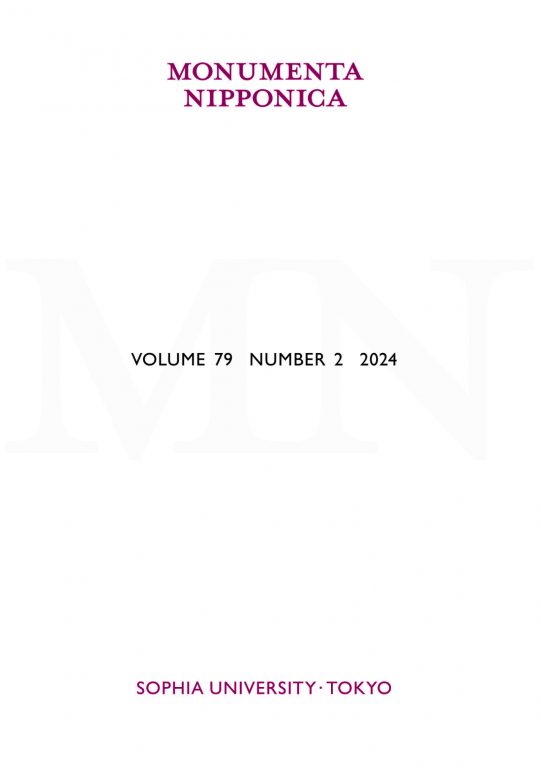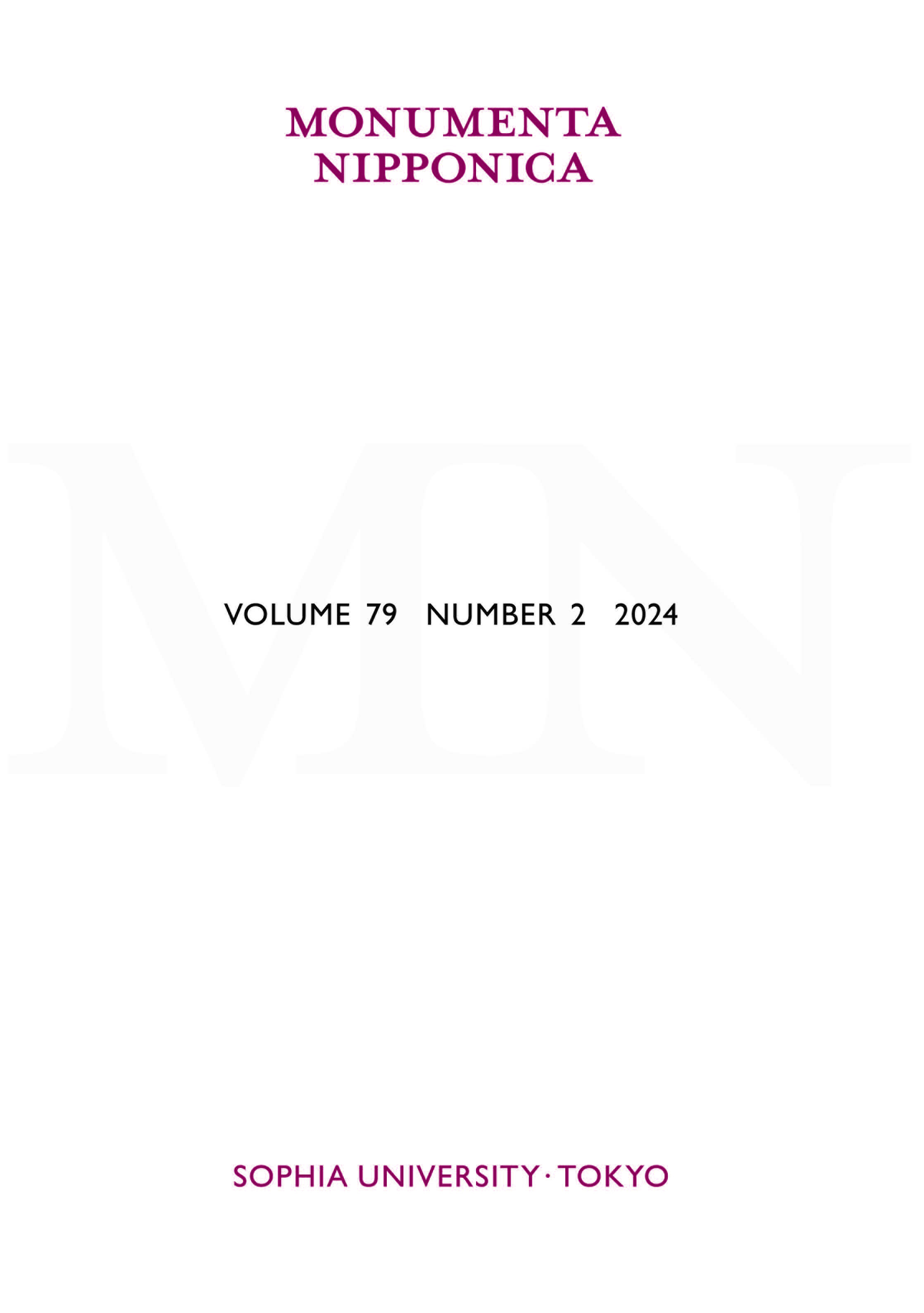The Samurai and the Cross: The Jesuit Enterprise in Early Modern Japan by M. Antoni J. UcerlerLuisa Stella de Oliveira Coutinho Silva
MN 79:2 (2024) pp. 267–74
Scholarship on the history of the Christian mission in Japan has slowly come to encompass a wider range of fields, perspectives, and critiques utilizing primary sources from both European and non-European actors and focusing also on the inner motivations and conflicts harbored by these various actors. This enriched body of sources makes possible a more detailed analysis than in the past of the relationship between the global and the local, and of the social relations between individuals from different backgrounds, genders, religions, political views, and birthplaces, thus allowing a more nuanced approach to understanding the past—an approach far removed from hegemonic anachronistic or idealized points of view.
The newest book by Jesuit M. Antoni J. Ucerler, one of the most active and eminent scholars in the study of the Christian mission in Asia, offers insights in this direction but also much more. The Samurai and the Cross: The Jesuit Enterprise in Early Modern Japan in a way retells the history of the Jesuit mission in Japan. The book describes how foreign missionaries with their respective cultural and educational backgrounds met, clashed, and adapted to Japanese culture and society in the specific context of civil war. It sheds light on how Jesuits justified their actions within the legal framework of the period while also defending their ideals in matters of war, conversions, and their own and others’ survival.

